Lcd companion boards support (VKLCD50RTA & VKLCD70RT)
What is this ?
This is a demo program using Renesas RGA library & USB Camera to demonstrate VK-RZ/A1H's companion boards workability.
Supported companion Boards:
VKLCD50RTA
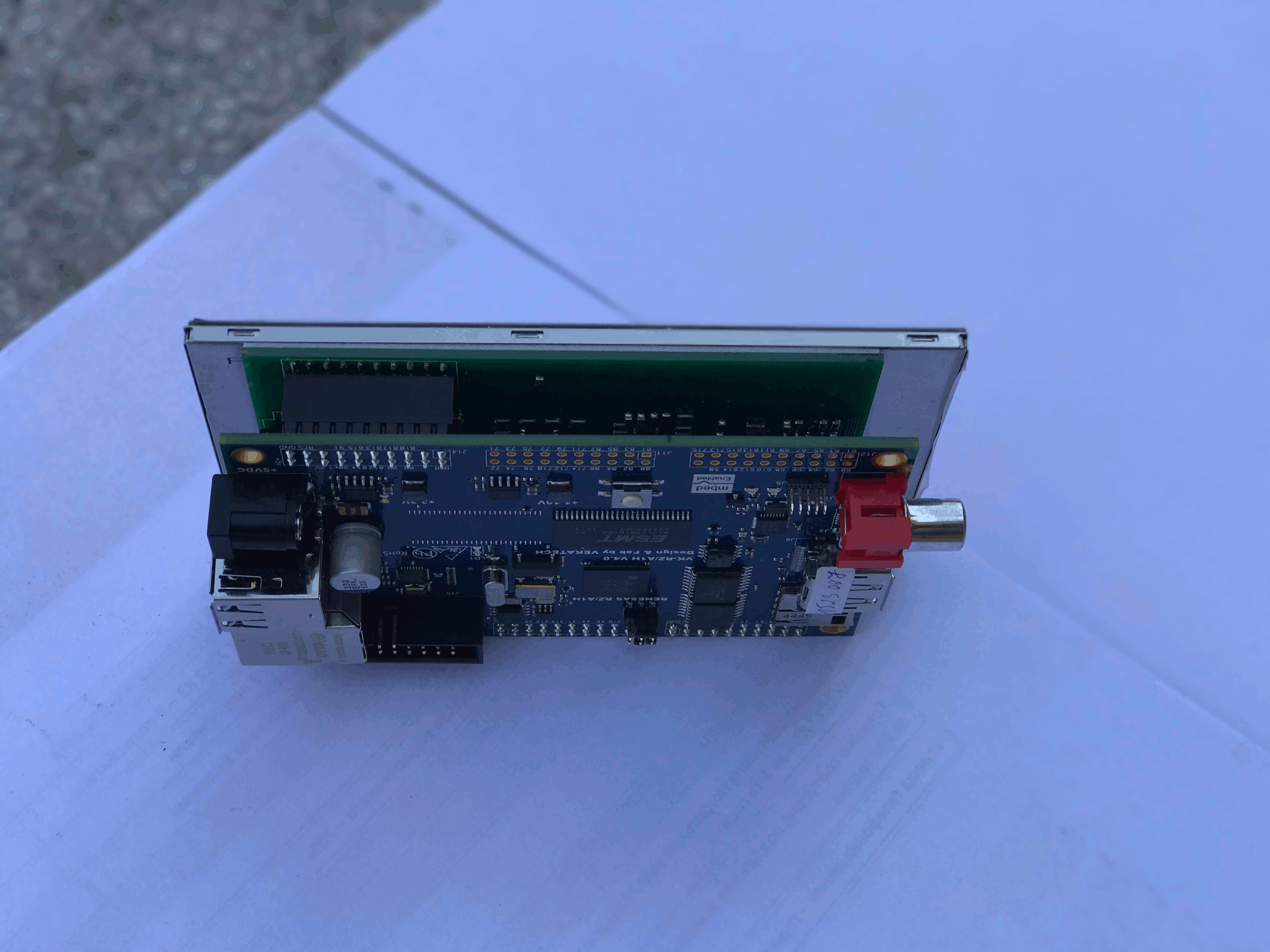
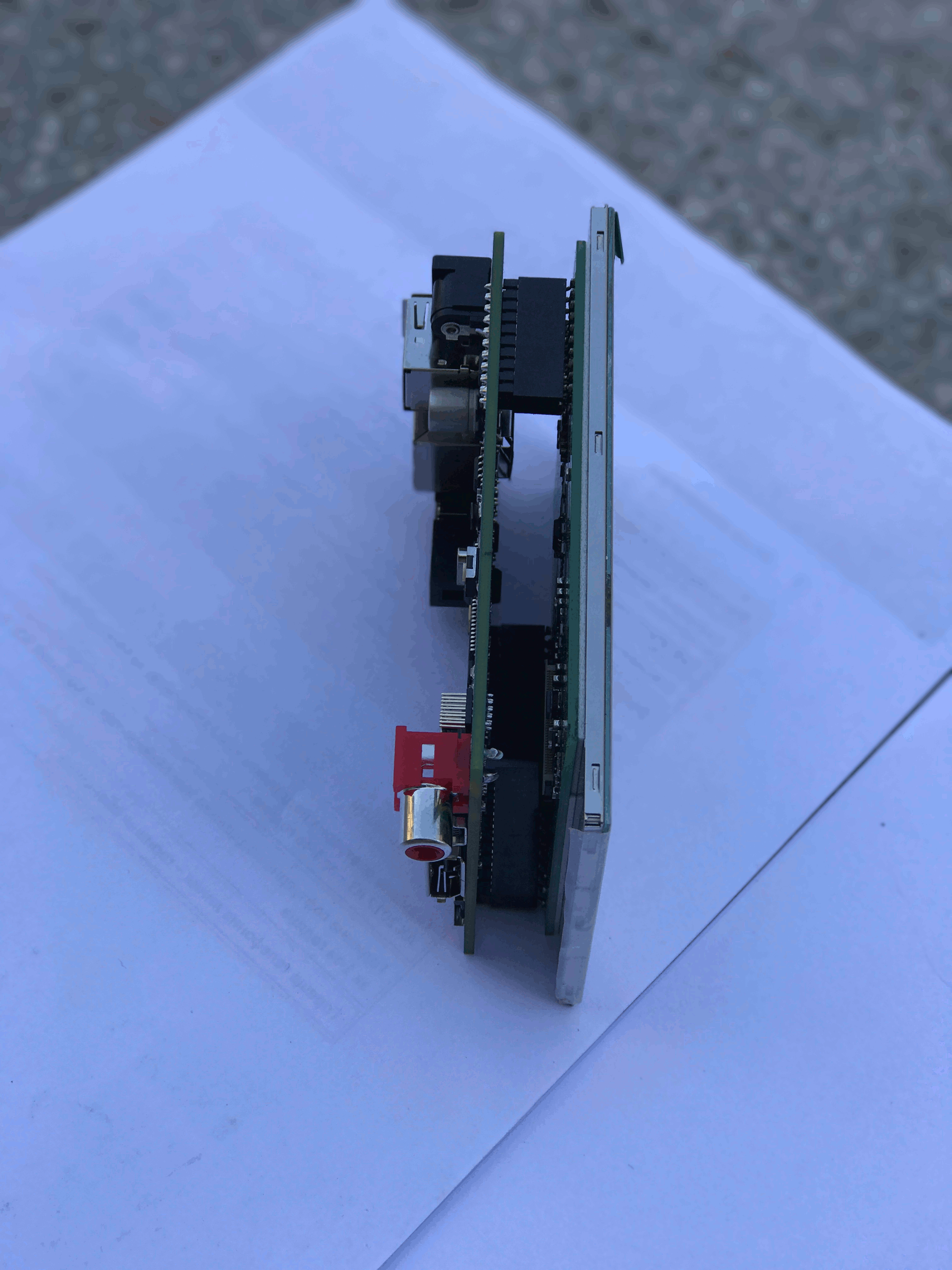
VKLCD70RT
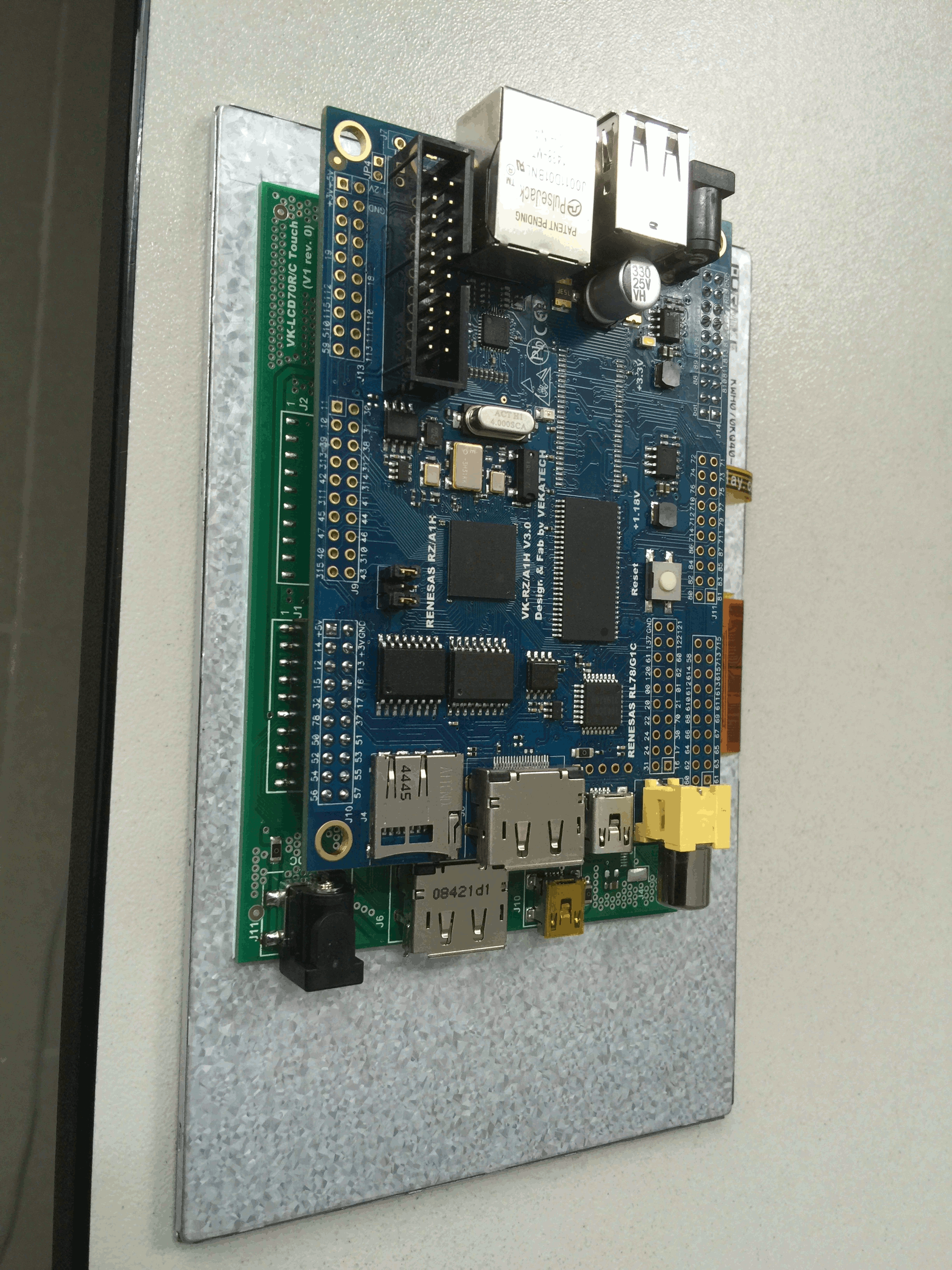
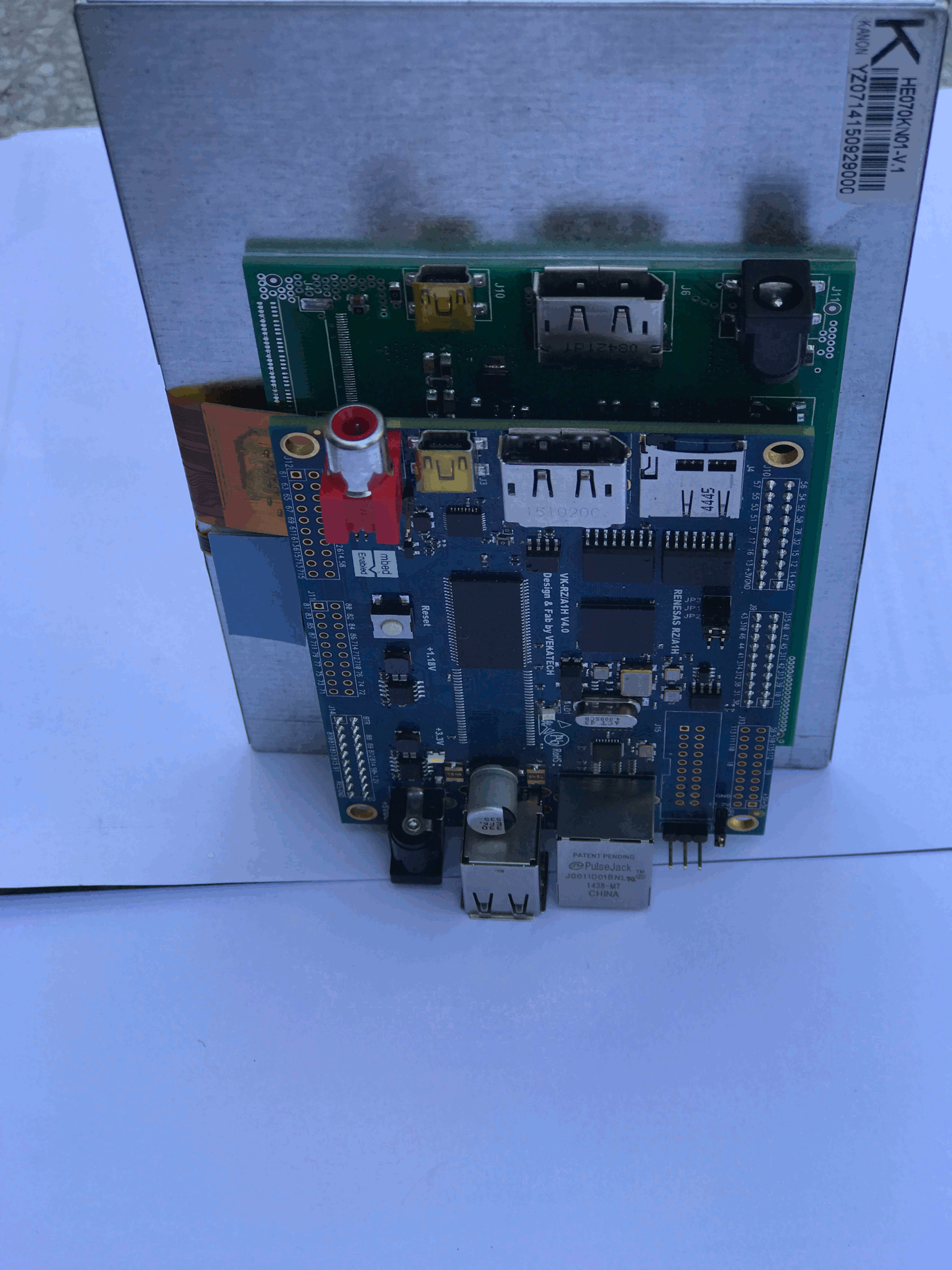
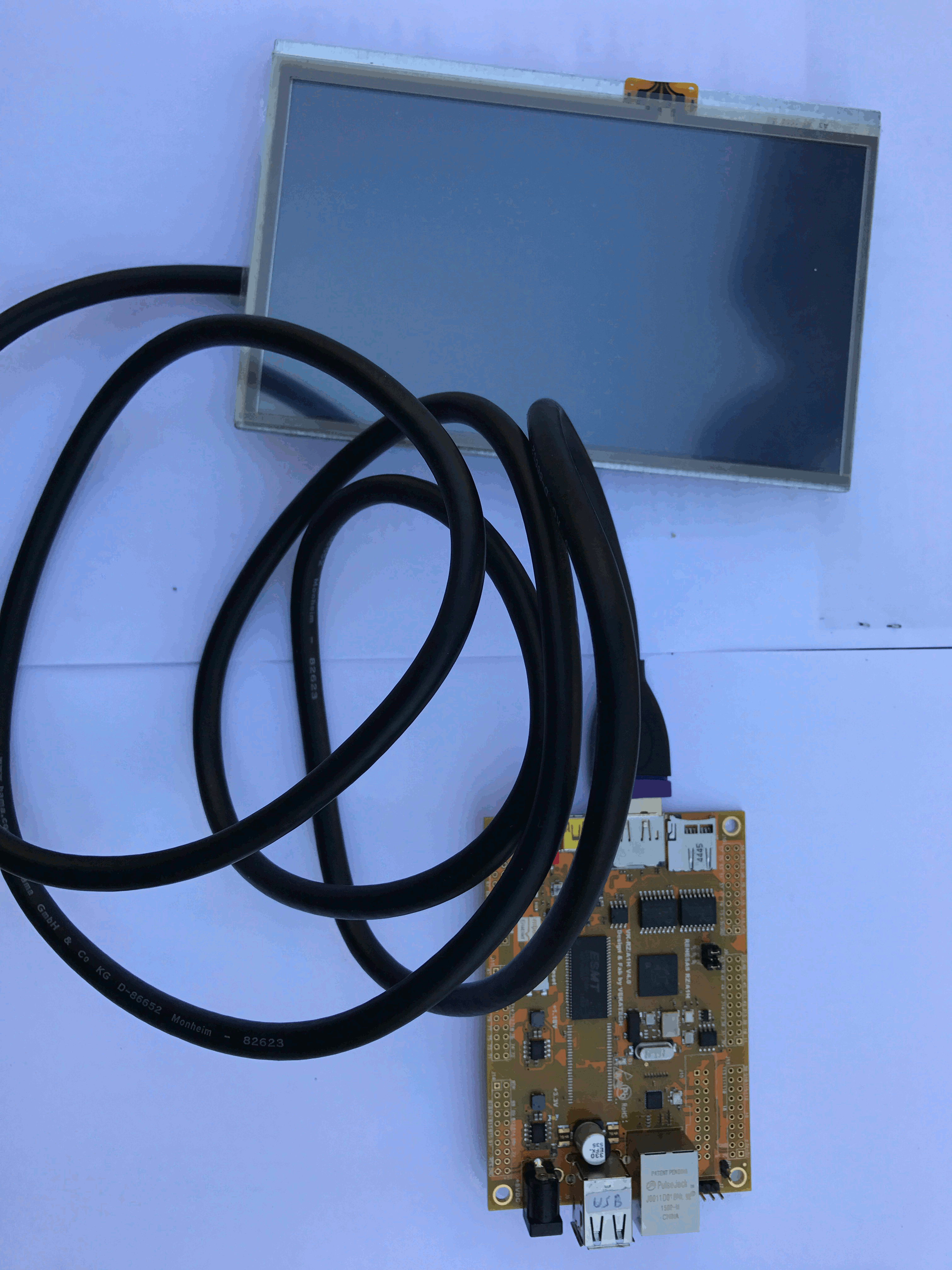
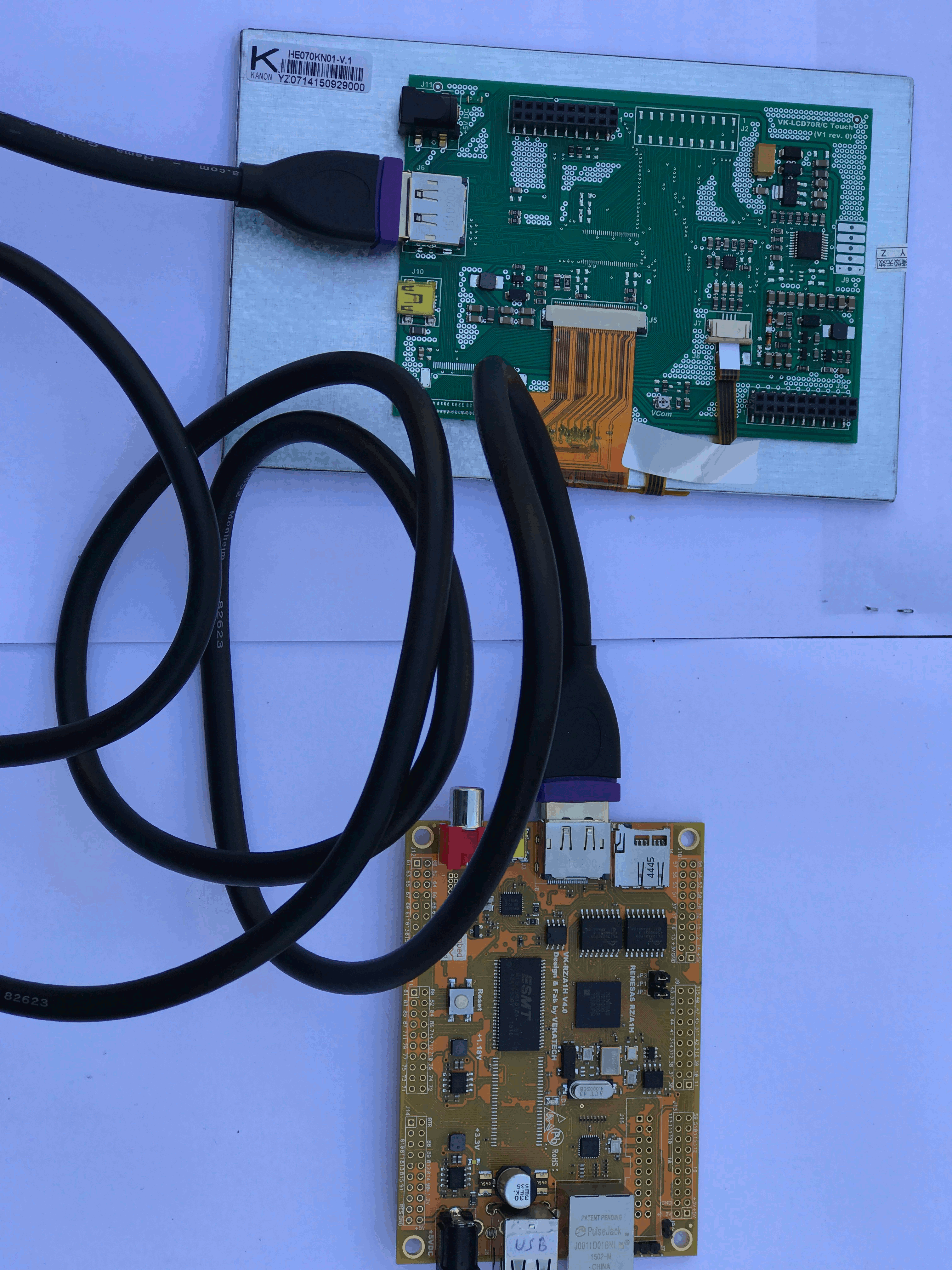
How to Configure ?
You can choose which display is installed by altering the lcd_panel.h file
Leave the active one & comment out the others:
#define LCD_VDC5_CH0_PANEL LCD_CH0_PANEL_VKLCD50RTA //#define LCD_VDC5_CH0_PANEL LCD_CH0_PANEL_VKLCD70RT
You can alter the whole demo with your pictures if you like:
How to compile ?
- The Demo can be compiled in 3 modes:
- I. Execution from the internal 10-MB on-chip SRAM.
- II. Execution from the on-board serial FALSH in dual (32-MB) mode.
- After import in the online compiler just leave only the VKRZA1H_DOUBLE.sct & delete all others linker files in the TOOLCHAIN_ARM_STD folder.
- Drag & drop the result binary in MBED disk, (previously inited in double flash mode)
- III. Execution from the on-board serial FALSH in single (16-MB) mode.
- After import in the online compiler just leave only the VKRZA1H_SINGLE.sct & delete all others linker files in the TOOLCHAIN_ARM_STD folder.
- Drag & drop the result binary in MBED disk, (previously inited in single flash mode )
Quick presentation:
Other demos ?
More demos you can find on our FTP
Diff: hal/common/I2C.cpp
- Revision:
- 0:6435b67ad23c
diff -r 000000000000 -r 6435b67ad23c hal/common/I2C.cpp
--- /dev/null Thu Jan 01 00:00:00 1970 +0000
+++ b/hal/common/I2C.cpp Thu Feb 16 10:23:48 2017 +0000
@@ -0,0 +1,164 @@
+/* mbed Microcontroller Library
+ * Copyright (c) 2006-2015 ARM Limited
+ *
+ * Licensed under the Apache License, Version 2.0 (the "License");
+ * you may not use this file except in compliance with the License.
+ * You may obtain a copy of the License at
+ *
+ * http://www.apache.org/licenses/LICENSE-2.0
+ *
+ * Unless required by applicable law or agreed to in writing, software
+ * distributed under the License is distributed on an "AS IS" BASIS,
+ * WITHOUT WARRANTIES OR CONDITIONS OF ANY KIND, either express or implied.
+ * See the License for the specific language governing permissions and
+ * limitations under the License.
+ */
+#include "I2C.h"
+
+#if DEVICE_I2C
+
+namespace mbed {
+
+I2C *I2C::_owner = NULL;
+SingletonPtr<PlatformMutex> I2C::_mutex;
+
+I2C::I2C(PinName sda, PinName scl) :
+#if DEVICE_I2C_ASYNCH
+ _irq(this), _usage(DMA_USAGE_NEVER),
+#endif
+ _i2c(), _hz(100000) {
+ // No lock needed in the constructor
+
+ // The init function also set the frequency to 100000
+ i2c_init(&_i2c, sda, scl);
+
+ // Used to avoid unnecessary frequency updates
+ _owner = this;
+}
+
+void I2C::frequency(int hz) {
+ lock();
+ _hz = hz;
+
+ // We want to update the frequency even if we are already the bus owners
+ i2c_frequency(&_i2c, _hz);
+
+ // Updating the frequency of the bus we become the owners of it
+ _owner = this;
+ unlock();
+}
+
+void I2C::aquire() {
+ lock();
+ if (_owner != this) {
+ i2c_frequency(&_i2c, _hz);
+ _owner = this;
+ }
+ unlock();
+}
+
+// write - Master Transmitter Mode
+int I2C::write(int address, const char* data, int length, bool repeated) {
+ lock();
+ aquire();
+
+ int stop = (repeated) ? 0 : 1;
+ int written = i2c_write(&_i2c, address, data, length, stop);
+
+ unlock();
+ return length != written;
+}
+
+int I2C::write(int data) {
+ lock();
+ int ret = i2c_byte_write(&_i2c, data);
+ unlock();
+ return ret;
+}
+
+// read - Master Reciever Mode
+int I2C::read(int address, char* data, int length, bool repeated) {
+ lock();
+ aquire();
+
+ int stop = (repeated) ? 0 : 1;
+ int read = i2c_read(&_i2c, address, data, length, stop);
+
+ unlock();
+ return length != read;
+}
+
+int I2C::read(int ack) {
+ lock();
+ int ret;
+ if (ack) {
+ ret = i2c_byte_read(&_i2c, 0);
+ } else {
+ ret = i2c_byte_read(&_i2c, 1);
+ }
+ unlock();
+ return ret;
+}
+
+void I2C::start(void) {
+ lock();
+ i2c_start(&_i2c);
+ unlock();
+}
+
+void I2C::stop(void) {
+ lock();
+ i2c_stop(&_i2c);
+ unlock();
+}
+
+void I2C::lock() {
+ _mutex->lock();
+}
+
+void I2C::unlock() {
+ _mutex->unlock();
+}
+
+#if DEVICE_I2C_ASYNCH
+
+int I2C::transfer(int address, const char *tx_buffer, int tx_length, char *rx_buffer, int rx_length, const event_callback_t& callback, int event, bool repeated)
+{
+ lock();
+ if (i2c_active(&_i2c)) {
+ unlock();
+ return -1; // transaction ongoing
+ }
+ aquire();
+
+ _callback = callback;
+ int stop = (repeated) ? 0 : 1;
+ _irq.callback(&I2C::irq_handler_asynch);
+ i2c_transfer_asynch(&_i2c, (void *)tx_buffer, tx_length, (void *)rx_buffer, rx_length, address, stop, _irq.entry(), event, _usage);
+ unlock();
+ return 0;
+}
+
+void I2C::abort_transfer(void)
+{
+ lock();
+ i2c_abort_asynch(&_i2c);
+ unlock();
+}
+
+void I2C::irq_handler_asynch(void)
+{
+ int event = i2c_irq_handler_asynch(&_i2c);
+ if (_callback && event) {
+ _callback.call(event);
+ }
+
+}
+
+
+#endif
+
+} // namespace mbed
+
+#endif
+